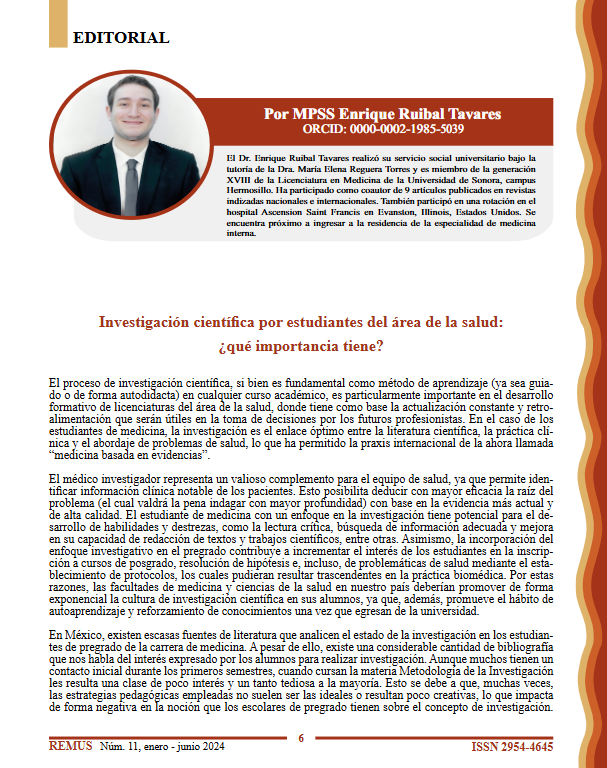Scientific research by health students: How important is it?
DOI:
https://doi.org/10.59420/remus.11.2024.198Keywords:
Scientific research, Medical education, Evidence-based medicine, Scientific disseminationAbstract
Dr. Enrique Ruibal Tavares, who is about to begin his residency in internal medicine and is a member of the 18th generation of the Medicine Degree Program at the University of Sonora, reflects on the crucial role scientific research plays in the education of future health professionals. He highlights how research bridges theoretical knowledge with clinical practice and helps develop skills such as critical reading, academic writing, and complex problem-solving.
Despite growing student interest, several obstacles remain, such as limited faculty experience in research and scarce institutional opportunities. However, today’s students have access to various ways to engage in research—through presenting scientific posters or abstracts at conferences, publishing case reports and letters to the editor, participating in research rotations, and even fulfilling their social service requirement through research projects supported by national programs like CIFRHS.
Finally, Ruibal emphasizes the role of the Revista Estudiantil de Medicina de la Universidad de Sonora (REMUS) as an active platform for scientific dissemination and encourages all students—regardless of their academic stage—to get involved in research, which is essential for evidence-based medical practice.
Ask ChatGDownloads

Downloads
Published
How to Cite
Issue
Section
License
Copyright (c) 2024 REMUS - Revista Estudiantil de Medicina de la Universidad de Sonora (Journal of Medical Students' of the University of Sonora)

This work is licensed under a Creative Commons Attribution-NonCommercial-NoDerivatives 4.0 International License.

